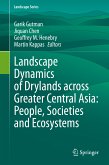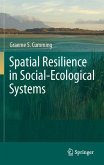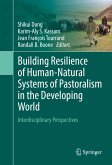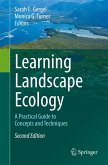The author goes further to analyze the manner, speed and methods of landscape change, and examines the historical context and governing agendas that have had an impact on the relationship between Cuba's inhabitants and their island. Gebelein also assesses the key role played by agricultural production in the framework of international trade required to sustain Cuba's people and its economy. The book concludes with a review of current efforts by Cuban and other research scientists, as well as private investors, conservation managers and university professors who are involved in shaping Cuba's evolving landscape and managing it during the country's possible transition to a more politically diverse, enfranchised and open polity.
Dieser Download kann aus rechtlichen Gründen nur mit Rechnungsadresse in A, B, BG, CY, CZ, D, DK, EW, E, FIN, F, GR, HR, H, IRL, I, LT, L, LR, M, NL, PL, P, R, S, SLO, SK ausgeliefert werden.









